I’ve often heard stories of those who grew up in the great depression. Many years later, they still had deeply engrained in them the scrupulous care for everything they have that was etched into their very being during that horrible time in our history. They spent a lifetime wasting nothing, even hoarding things. They would eat leftovers well past their freshness dates. It was just their response to having nothing, completely understandable.
And that’s the lens through which I think we need to see this week’s Gospel parable. Here Jesus presents the often quoted story of a rich man entrusting his slaves with a great deal of wealth before he sets off on a long journey. The word “talents” here does not mean what we mean when we use that word: here we are not talking about gifts or abilities, but rather money, and a large sum of money at that. Scholars suggest that a talent was equal to something like one thousand days’ wages, or what a poor person could have lived on for fifteen or twenty years. So think about it, even the servant who only received one talent actually received quite a bit – he received what the average person would earn in a little over three years! That’s a lot of money for anyone.
So who is it, then, that is receiving such a magnanimous gift? On first glance, seeing what it is they have been given, we might think these are senior advisers to the master, people who would have been in charge of his estate and his business transactions. But that’s not what it says. It says he called in his “servants” – so we are talking here about slaves, slaves – not business advisers. And so these slaves are getting ten talents, five talents, and one talent – all of them are getting a considerable amount of money!
And we know the story. Two of them take what they have and very successfully invest it and when the master returns, are able to hand over the original sum with one hundred per cent interest. Very impressive! But the slave who received just a “little” (even though it was certainly still a lot of money), out of fear buries it in the ground and gives it back to the master untouched, with nothing to show for it. It’s much like a person having gone through something like the great depression placing money under a mattress rather than trust the banks, which they saw fail miserably in their lifetimes.
It’s a lot to unpack here, but let’s see where we can go. We’ve established that the gift they are receiving – even the slave who received little – is worth an incredible amount of money, especially to a slave who would never have the opportunity to see such wealth if not for the trust the master has placed in them. So let’s be clear that this parable is not about us using our gifts properly; it’s about we slaves receiving something very great, some inestimable wealth. What could that possibly be? Well, of course, it’s God’s love, grace, and favor, which is undeservedly ours and given to us without merit.
So just for background, this is yet another indictment of the Pharisees and religious establishment of the time. They were the ones who, because Christ was not yet present in the world, received just one talent. But it was still a huge sum of grace! Yet, their practice was to protect it so scrupulously by attending to the minutiae of the 613 laws of the Torah, that they missed the opportunity to really invest God’s love in the world and grow the faith to full stature.
So we can’t be like that. We can’t have the faith taken away from us and be tossed out to wail and grind our teeth. We have to take the faith we’ve been given, the grace we have received in baptism, and invest it mightily in the world, without fear, so that everyone will come to know the Lord and we would all go on to be put in charge of greater things, in the kingdom of heaven. That is our vocation in the world, brothers and sisters in Christ. We have to get that right. We can’t cower in fear, or think our faith is too little, or we don’t know enough. That was the cardinal sin for Matthew in his Gospel. We have to be bold disciples and make sure that Christ is known everywhere we go, everywhere life takes us. That is the only acceptable response to God’s love.
[[ Today we welcome our candidates for full Communion with the Church. They have all been baptized in other Christian communities, and have come to us to become Catholic. They have already been meeting with our RCIA program to grow in their knowledge of the faith and experience of God’s presence in their lives. Welcoming them today, we have marked them with the sign of the Cross, helping them to remember the treasure of grace and love that God has already entrusted to them in baptism. As we invest our faith in them today, we have hope that they will do the same for others, so that many more believers may be found for the kingdom of God.]]We have come to the second-to-last Sunday of the Church year. Next week, we will celebrate the Solemnity of Christ the King of the Universe, and then look forward to a new year as we begin the season of Advent. And so it is important that we take today’s Gospel parable seriously. We need to spend some time reflecting on how well we have invested God’s grace and love in the world around us. Have we been good examples to our family and others? Have we been people of integrity in our workplaces, schools and community? Have we served those who are in need out of love for Christ? Have we been zealous to grow in our spiritual lives? Have we taken time to root sin out of our life, and to receive the grace of forgiveness in the Sacrament of Penance? Have we been unafraid to witness to our faith in every situation?
If we can’t answer all these questions affirmatively, we have some new-Church-year’s resolutions to make. Because, and I can’t stress this strongly enough, brothers and sisters, the alternative is wailing and grinding of teeth. And forever is a long time to be doing that! No; God forbid. Our desire is to hear those wonderful words from our Lord one day: “Well done, my good and faithful servant. Since you were faithful in small matters, I will give you great responsibilities. Come, share your master’s joy.”

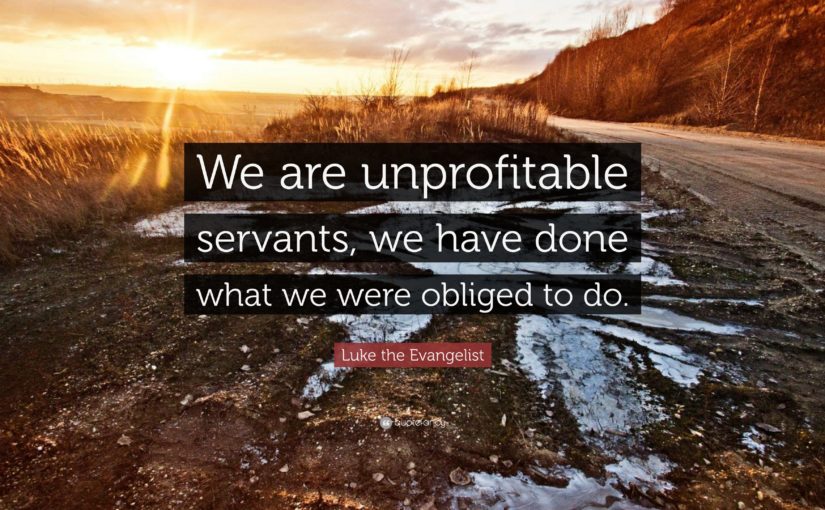
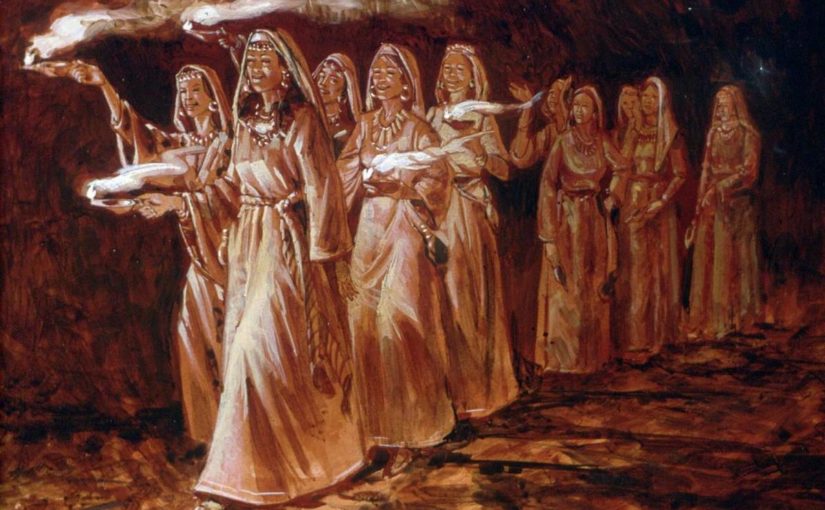
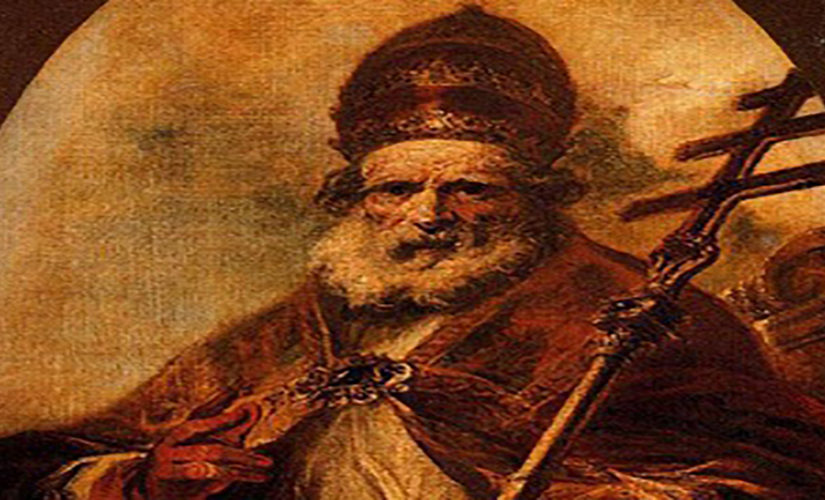
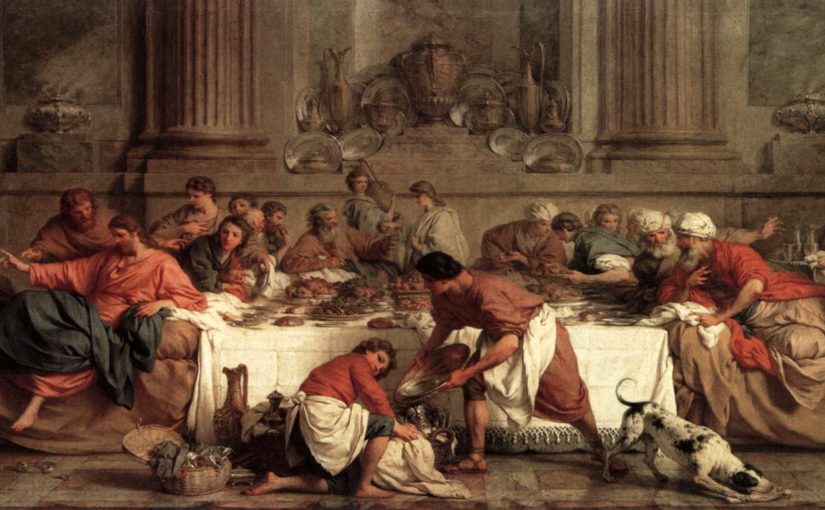


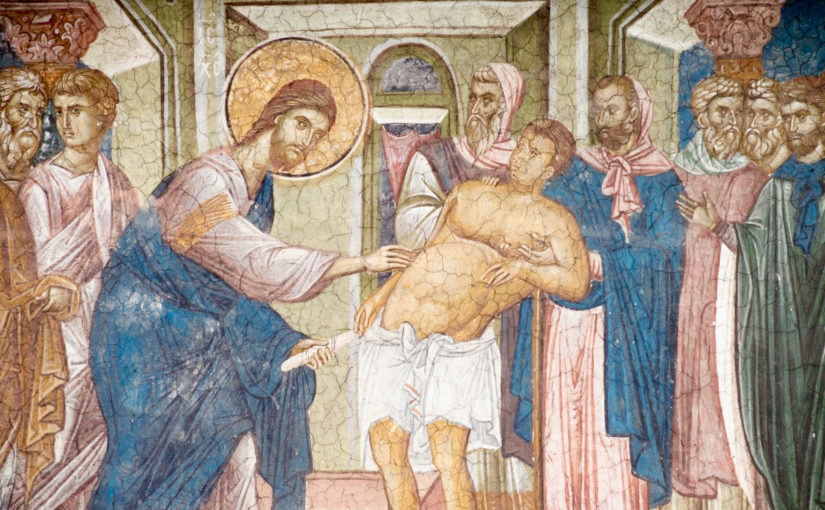

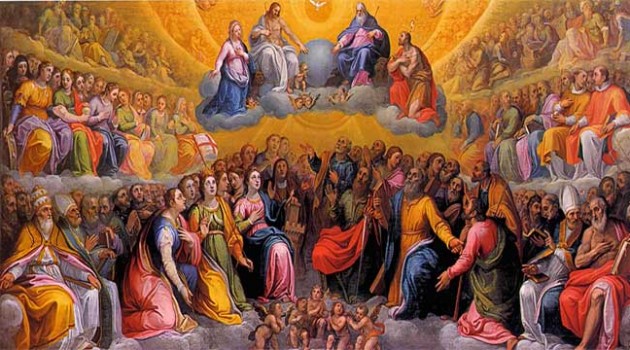
You must be logged in to post a comment.